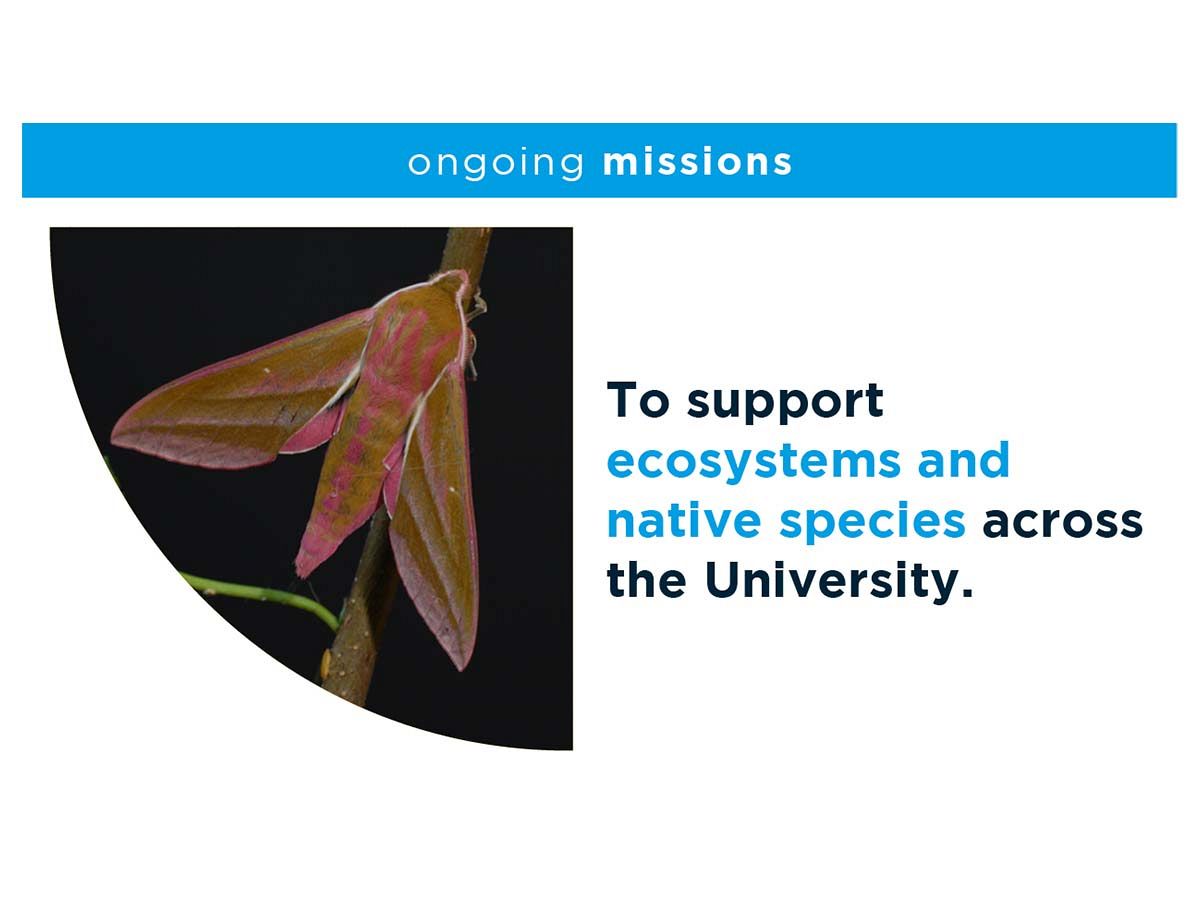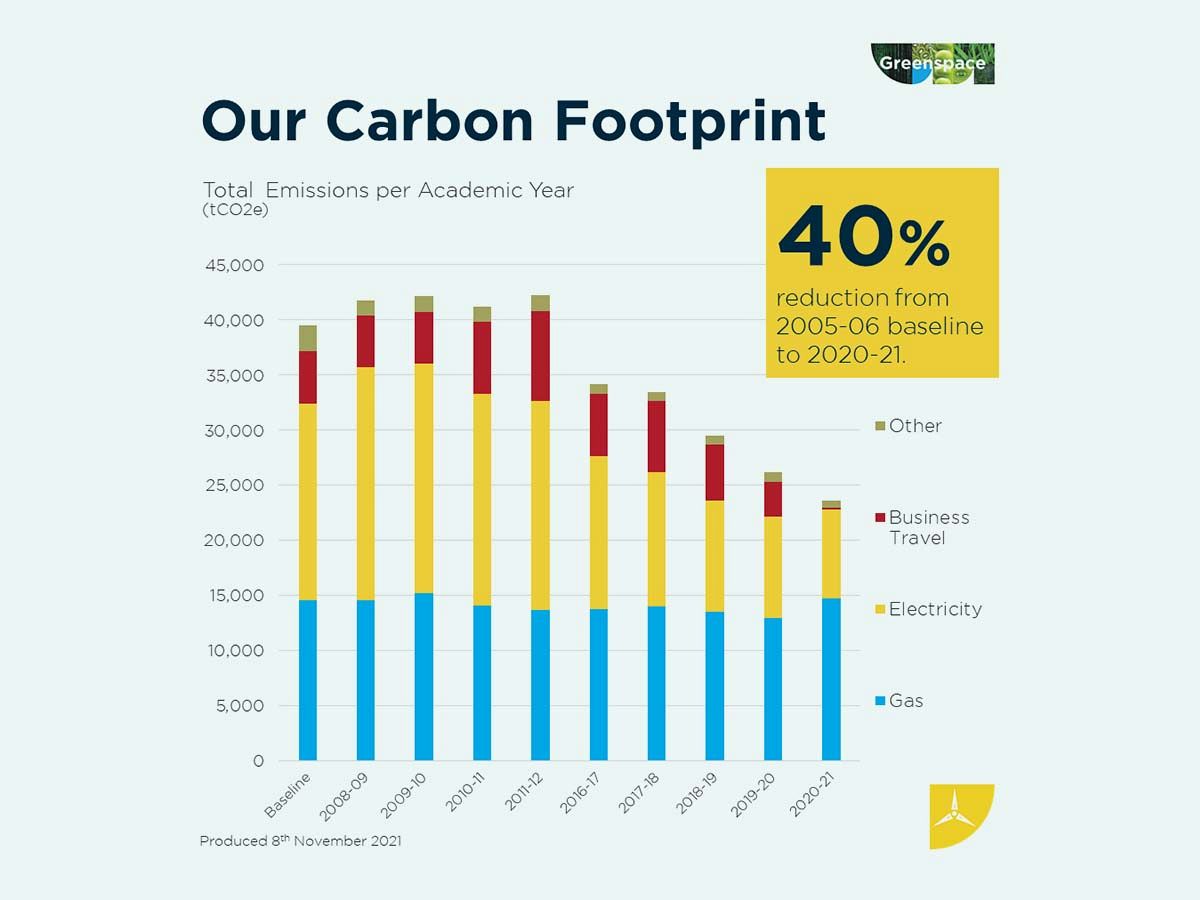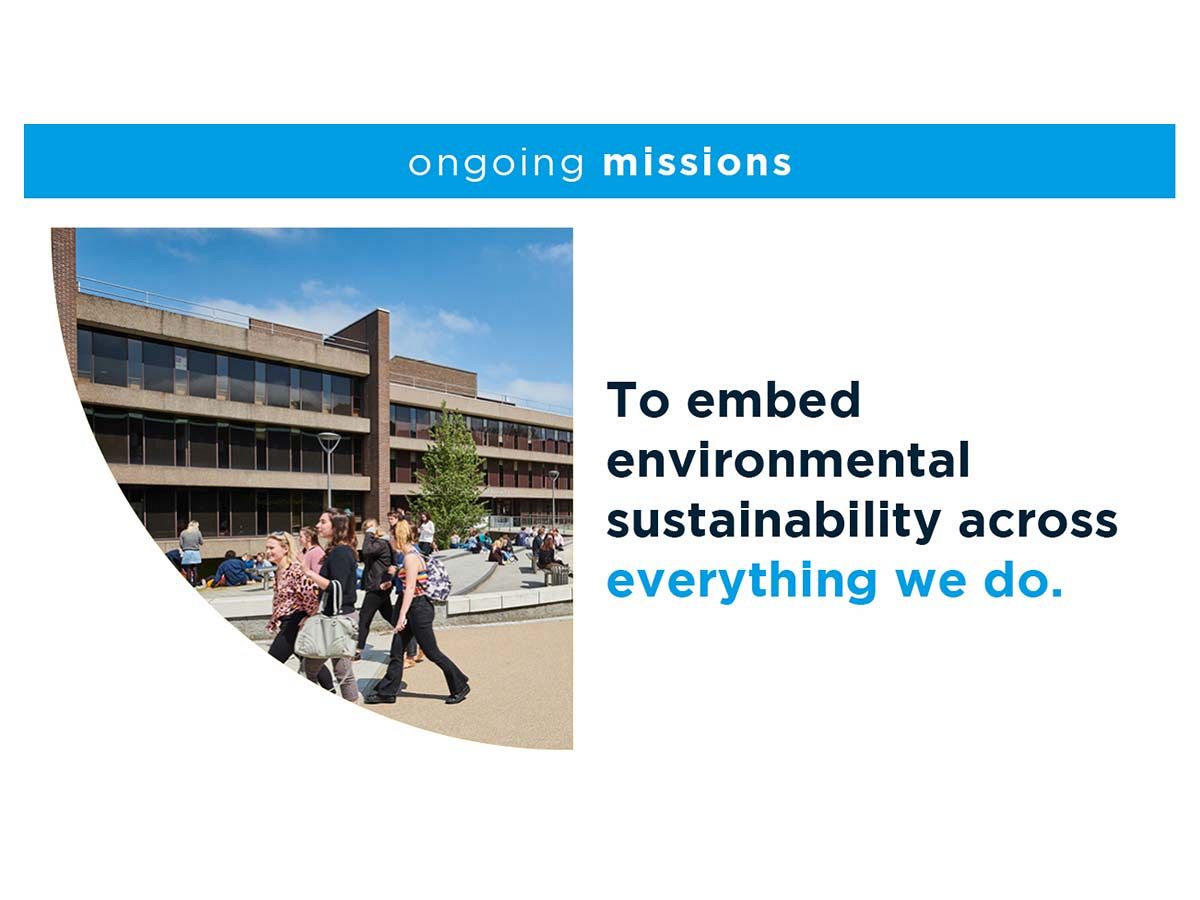The strategic oversight of the University’s commitment to Biodiversity and ecosystems across our University Estate is managed by the Biodiversity Sub-Group, a sub-committee of our Environmental Sustainability Strategic Planning Group (ESSPG) that was established earlier this year.
Our primary task as a group was to produce the University’s Biodiversity Strategy & Action Plan, which includes a proactive strategy for the conservation, enhancement and promotion of Biodiversity across our Estate.

Image text: Ongoing missions - to support ecosystems and native species across the University
We aspire to enhance the University and City, as a place where wildlife can prosper and we can all live, work and study within a healthy environment.
Wildflower Meadow Trials at the Botanic Garden
As part of our ongoing work around Biodiversity, we work in partnership with lots of different groups in and around Durham. During Michaelmas Term, Durham Wildlife Trust and student volunteers supported the Grounds and Gardens Team to trial different methods for turning lawns into nine different wildflower meadows.
Each meadow uses a different method ranging from a traditional meadow to a sensory lawn. The trail area is next to the main Visitor Centre entrance, and the fruits of the group’s labour will be evident in the spring. Open all year round, the Botanic Garden is a great place to visit and offers a wide variety of landscapes to explore and discover.
Look out for more photos in our next Dialogue article in March, and don’t forget you can earn points for connecting with nature head to MyGreenspace.

Carbon Dashboard:
We’re also working to develop a new Carbon Management Plan and have engaged with the Carbon Trust to support two key projects. The first, completed in Easter Term 2021, was to develop a long term ‘Science Based’ target for our on-site emissions, and the second, underway in Michaelmas Term 2021, is to analyse our ‘Scope 3’ emissions, which includes procurement, business travel and waste. Together the projects will ensure we have ambitious targets in place covering all of the University’s carbon emissions.
In the academic year of 2020-21, we have reduced our carbon footprint by 40.2% since our baseline year of 2005-06. For more information visit Carbon Management Programme and Plan.
Remember, you can earn points for ‘Switching Off’ with MyGreenspace. Check out the Impact Dashboard and Leaderboards to see how much carbon you’ve saved or how your team is performing. Get involved with our Switch Off Challenges at My Greenspace Homepage (teamjump.co.uk), especially during Big Energy Saving Week (18-24 January).
*data may change

Image text: Ongoing missions - to embed environmental sustainability across everything we do
Cycling Safely
Staff and students were able to attend free Dr Bike sessions at our Sports and Wellbeing Park. Working in partnership with Recyke Y’Bike, the free bike maintenance events were able to run due to kind sponsorship from Cycling UK. Students and staff were also reminded of the legal requirement and importance to use lights on the front and rear of their bikes whilst cycling in the dark.

Image text: Our tea and coffee is Fairtrade #FairtradeFortnight
Coming up on My Greenspace:
The ‘College Power Down Challenge’ is back! Colleges are going head to head to see who will reduce their electricity use the most throughout January.
Fairtrade February
Get involved with the international Fairtrade Fortnight and organise a Team Bake Off using Fairtrade ingredients.
Find out more
You can find out more about Biodiversity on our website or by reading our Biodiversity sway.
